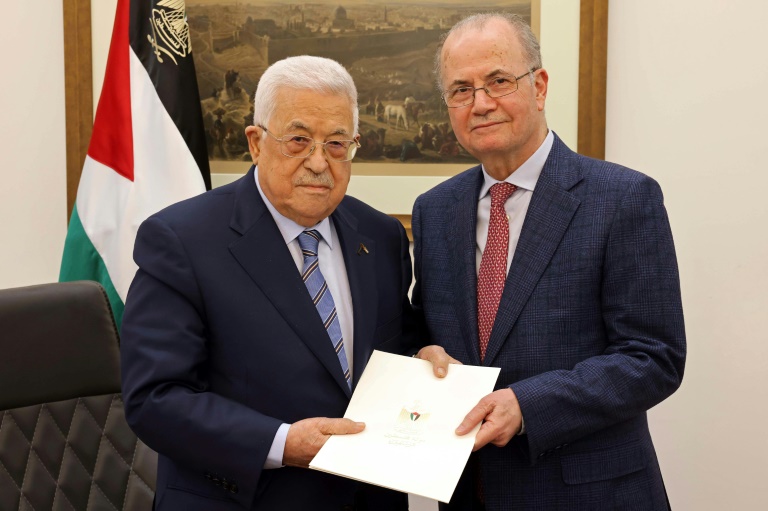Hamas, other Palestinian factions decry naming of new PM

Palestinian president Mahmud Abbas (L) presents new prime minister Mohammad Mustafa after his appointment on Thursday which was criticised by Hamas and other factions
Ramallah – Hamas and other factions said Friday that this week’s appointment of a new Palestinian prime minister by president Mahmud Abbas could deepen divisions as war rages in Gaza.
“Making individual decisions, and engaging in formal steps that are devoid of substance, like forming a new government without national consensus, is a reinforcement of a policy of exclusion and the deepening of division,” the factions said in a statement.
Such steps point to a “huge gap between the (Palestinian) Authority and the people, their concerns and their aspirations.”
The statement came the day after Abbas appointed Mohammed Mustafa, a long-trusted adviser on economic affairs, as prime minister and tasked him with forming a new government.
The other signatories were the second largest militant group in Gaza, Islamic Jihad, the leftist Popular Front for the Liberation of Palestine and the Palestinian National Initiative, a political party which seeks a third way between Abbas’s Fatah movement and Hamas.
Mustafa replaces Mohammed Shtayyeh, who resigned less than three weeks ago citing the need for change after the Hamas attack of October 7 triggered war with Israel in Gaza.
The attack resulted in the deaths of around 1,160 people, mostly civilians, according to an AFP tally of Israeli figures.
The retaliatory Israeli military offensive in Gaza has killed at least 31,490 people, most of them women and children, according to the territory’s health ministry.
The 69-year-old Mustafa now faces the task of forming a new government for the Palestinian Authority, which has limited powers in parts of the Israeli-occupied West Bank.
Since 2007, control of the Palestinian territories has been divided between Abbas’s Palestinian Authority in the West Bank and Hamas in the Gaza Strip.
Analysts have said Mustafa’s closeness to Abbas would limit chances for major reform of the Palestinian Authority.
The United States and other powers have called for a reformed Palestinian Authority to take charge of all Palestinian territories after the war ends.
But Israeli Prime Minister Benjamin Netanyahu’s government has rejected post-war plans for Palestinian sovereignty.
